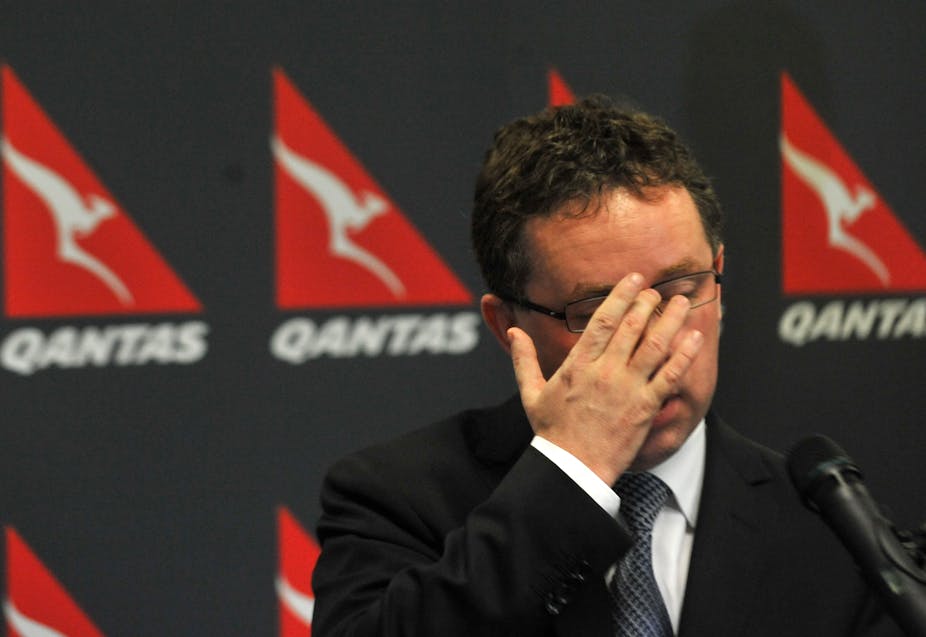Stopwork action, accusations of leaks, cancelled flights, even calls for the Federal Government to intervene: it seems the bad news for Qantas never ends.
Greg Bamber, Professor in the Department of Management at Monash University gives an analysis on the latest developments.
Where will all this end?
It will end with a settlement sooner or later because the workforce wants to resume normal working and so does Qantas and its customers. It’s in all their interests to get to a settlement as soon as possible.
What is it going to take to get these parties to the table?
It might need some government intervention or one of the parties might ask Fair Work Australia (FWA) to intervene. FWA is the umpire which has the expertise to conduct mediation, conciliation, arbitration in such industrial disputes.
My guess is FWA will get involved in bringing the parties together to work out a settlement together. However, this is a skirmish may be at a fairly early stage; it may become a lengthy industrial dispute.
Relations seem to have deteriorated between Qantas and the unions that represent key components of its workforce. The parties are behaving in an very adversarial manner.
It would be better to work through these issues in a spirit of cooperation, mutual gains and joint problem solving, rather than public name calling and adopting metaphors from warfare.
The chief executive earlier this year was calling key members of his workforce “Kamikaze” pilots. I don’t think that’s the kind of language that helps to settle a dispute like this.
The Qantas board appears to have adopted a strategy that it is going to fight these particular unions and vice versa.
The longer this goes on, how much more damage will be inflicted both to Qantas as a brand and as a company?
As a service sector enterprise, it’s important the staff are happy, then they will treat the customers well who will want to come back and fly again with this airline.
This kind of industrial warfare may be more typical of manufacturing, the waterfront or in the mining industry, but it is more damaging in a service sector industry, which faces its customers directly.
Chief executive Alan Joyce is also under fire today from the Australian Shareholders Association over his reported 71% pay rise, lifting his annual pay package to $5 million. Was this a good move by Qantas in the current environment?
The timing and substance such as increase in remuneration was unfortunate. It does seem odd for a firm to award its CEO and other senior executives such huge increases in their income - already at a high level - while simultaneously asking the workforce to cut costs and jobs.
This decision seems hard to justify bearing in mind that several key performance indicators have not been looking very good: the share price has been falling, it’s cutting back its international services, it’s in the midst of a serious dispute with three key components of its workforce and it’s been subject to large fines for illegal price fixing behaviour.
What about this idea floated today to nationalise Qantas International?
Qantas was a public sector company for many years and some of its key competitors are public sector enterprises, like Singapore Airlines - which is widely regarded as one of the best airlines in the world - Emirates and Air New Zealand.
But I don’t think it’s a likely move by the current - or a future - government because nationalising Qantas would be an expensive move. One reason why Qantas was privatised was to allow it to raise more money to invest in the new aircraft without using government funding.
Greg Bamber is the co-author of “Up in the air: how airlines can improve their performance by engaging their employees

